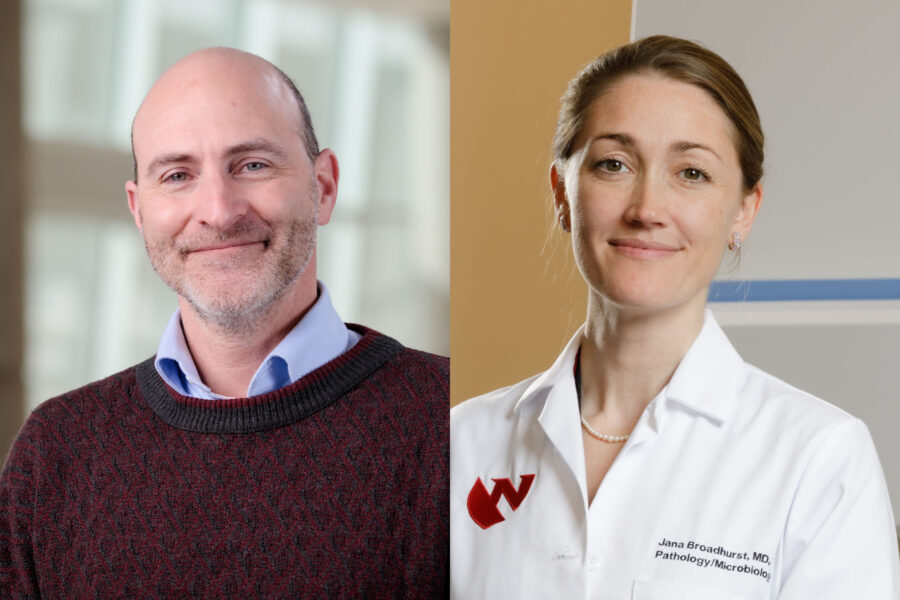A team from the UNMC Global Center for Health Security (GCHS) traveled to Puerto Rico to work with Puerto Rico’s Medical Reserve Corps and continue development on UNMC’s ISTARI isolation tent device family.
The weeklong event was part of a UNMC project funded by the U.S. Centers of Disease Control and Prevention. A partner in CDC’s Project Firstline, UNMC works to enhance infection prevention and control (IPC) practice in rural and other critical access settings.
David Brett-Major, MD, an epidemiology professor in the UNMC College of Public Health, said Puerto Rico provided excellent collaborators who were highly experienced in disaster risk management. The area also offered the right environmental challenges – with heat, humidity and storms – to test a field version of the ISTARI isolation tent in patient care scenarios involving highly infectious diseases.
See a video of the field training in Puerto Rico at this link.
The exercises, held this summer, allowed UNMC staff, personnel from the Puerto Rico Medical Reserve Corps and the Department of Health and other consultants experienced in high-consequence infectious disease care to practice field IPC while also putting a prototype of the ISTARI field isolation tent through its paces. The tent is intended for sustained, critical care-level case management of patients with communicable diseases outside of a health care facility.
The ISTARI – which stands for Isolation System for Treatment and Agile Response for high-risk Infections – is a portable negative pressure system that allows health care workers and patients to safely interact without continual use of personal protective equipment. It makes good communication and care more accessible when patient isolation is required.
“These events where we test ISTARI devices are powerful opportunities to reinforce core infection prevention and control principles, practices and workflows,” said Jana Broadhurst, MD PhD, a clinical microbiologist in the UNMC College of Medicine and principal investigator of the project.
Additional UNMC participants in the exercise included: James Lawler, MD, professor of infectious diseases and the Global Center for Health Security’s associate director of international programs and innovation; Lindsey Bandow, Lauryn Burbridge, Mark Vazquez and Lisa Willard of the Global Center for Health Security; Lauren Longacre of the UNMC College of Public Health; UNMC medical student Keaton Read; and Taylor Burke, a student in the MD/PhD Scholars Program.
Dr. Broadhurst said more than 40 local volunteers and staff participated in the training, discussions and exercises, including simulated management of field isolation cases in Guayanilla, Puerto Rico, where they worked side-by-side with UNMC team members. These simulations allowed UNMC, Puerto Rico personnel and consultants to provide feedback on the ISTARI’s use.
The week culminated in a debriefing held in San Juan for local public health and emergency response personnel, CDC staff and other stakeholders to learn about the exercises and engage with ISTARI devices on display.
Feedback from the field was positive. Drs. Broadhurst and Brett-Major said the Puerto Rico volunteers expressed that the IPC training was unique and highly valuable and that the ISTARI field isolation tent was useful in their setting.
For UNMC staff developing the isolation system, the exercises provided needed design and build input, they said.
“Everywhere we conduct patient care, there is a need for safer, more effective care of patients when high level infection prevention and control is required,” Dr. Brett-Major said, “in ways that improve the patient experience, engender trust and access by communities and enable health care providers to be fully present and bring their most robust skills to bear for the good of the patient.”
